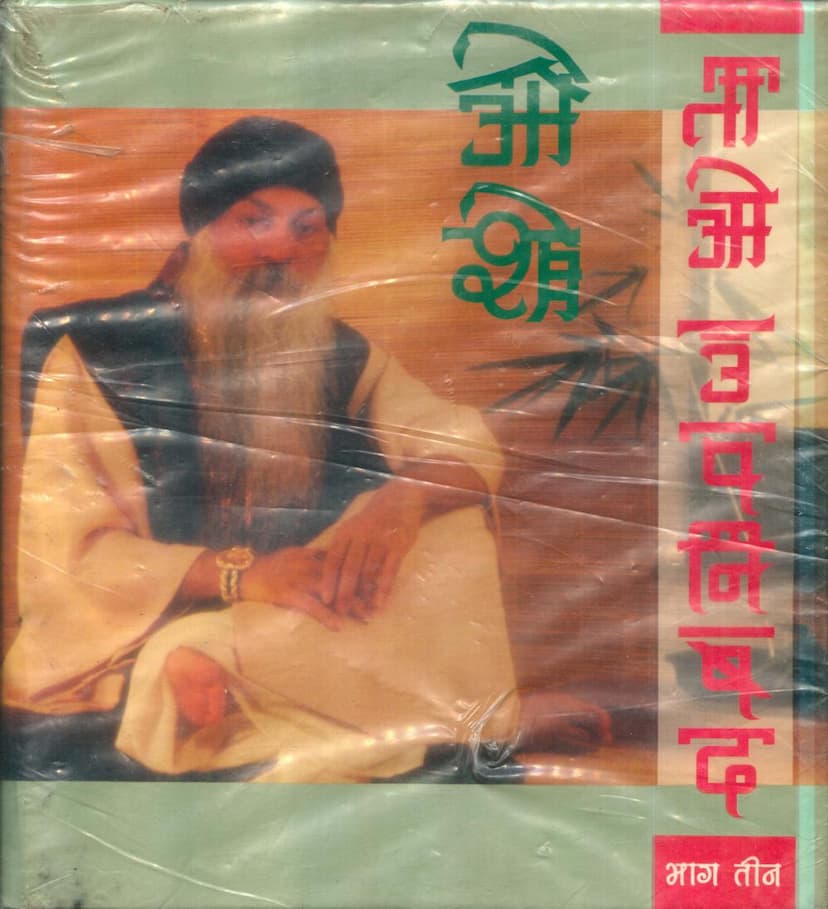Tao Upnishad Part 03
Added to library: September 2, 2025

Summary
The provided text is the third volume of "Tao Upanishad," a collection of discourses by Osho Rajneesh based on Lao Tzu's "Tao Te Ching." The summary focuses on the key themes and concepts presented in the translated excerpts.
Title: Tao Upanishad Part 03 Author: Osho Rajneesh Publisher: Rebel Publishing House Puna
Core Themes and Concepts:
The book delves into the teachings of Lao Tzu, interpreted through Osho's unique perspective, emphasizing a return to natural living, inner peace, and understanding the flow of the universe (Tao). Key ideas include:
- The Nature of Tao: Tao is presented as the fundamental, unmanifest source of all existence, preceding creation itself. It is the essence that remains before and after forms appear and disappear. Living in accordance with Tao means being aligned with one's true nature and the universal flow, rather than forcing one's will upon it.
- Rejecting Superficial Knowledge: Osho stresses the importance of "unlearning" societal conditioning, learned behaviors, and intellectual concepts ("learning," "scholarship," "knowledge"). This learned knowledge is seen as a veil that hides one's true, innate nature, which is described as pure, unadulterated, and "uncarved wood" (purna). True knowing comes from within, from recognizing one's essential self, unburdened by external impositions.
- The Paradox of Being: The text explores several paradoxes central to Taoist thought:
- Yielding for Strength: Yielding and being flexible, like water or a reed, leads to true strength and preservation, while rigidity and resistance lead to breaking and destruction.
- Emptiness for Fulfillment: Being "hollow" or empty allows one to be filled. Trying to grasp or possess leads to loss. This applies to material possessions, knowledge, and even emotions. True fulfillment comes from letting go.
- Futility of Contention: Any attempt to control, force, or conquer the world or others is ultimately futile and counterproductive. The Sage does not contend, and by not contending, achieves ultimate victory and harmony.
- Living Naturally and Spontaneously: Laotse's philosophy advocates for living in tune with one's natural state, free from ego-driven ambitions, societal pressures, and intellectual grasping. This involves embracing simplicity, spontaneity, and a childlike innocence. The emphasis is on "being" rather than "doing" or "becoming."
- The Role of Nature: Nature is revered as the ultimate teacher and the source of all wisdom. Nature operates without effort, yet achieves all things. Human interference, driven by ego and a desire to control, disrupts this natural harmony and leads to suffering and imbalance.
- The "Good Man" vs. the "Sage": The text distinguishes between the conventionally "good man" who follows societal rules and virtues out of obligation or for external rewards (seen as "dregs and tumors of virtue"), and the Sage who lives from an inner source of natural virtue, spontaneously aligned with Tao. The Sage is described as appearing simple, unassuming, even "dull" or "confused" in contrast to the outwardly "knowing" and "clever" societal norms, but possesses an inner clarity and strength.
- The Importance of Inner Stillness: Amidst the constant flux and activity of the world, the Sage cultivates inner stillness and equanimity. This inner stillness is the source of true power and understanding, allowing one to navigate life's challenges without being disturbed.
- The "Valley" and "Uncarved Wood": Laotse's ideal of being a "valley" or embracing "uncarved wood" signifies receptivity, humility, and a return to one's original, unadulterated nature. This state of being allows one to be filled, to remain whole, and to connect with the fundamental flow of existence.
Key Takeaways:
The "Tao Upanishad Part 03" offers a profound exploration of Laotse's wisdom through Osho's lens, encouraging readers to look beyond superficialities and conditioning to discover their inherent nature and the effortless flow of life. It emphasizes letting go of the ego's need for control, achievement, and external validation, and instead embracing simplicity, surrender, and trust in the natural order of the universe. True strength is found in yielding, true knowledge in inner stillness, and true freedom in aligning oneself with the Tao.